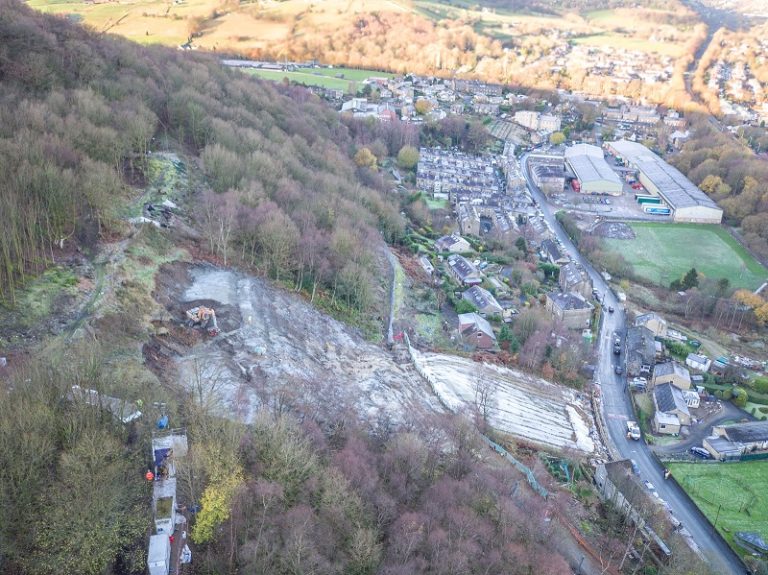Data from the Markit / CIPS Construction Purchasing Managers Index, which measures activity in the construction sector, reported the fastest drop in output since June 2009. The report found commercial building experienced its steepest fall in six-and-a half years, while civil engineering activity dropped for the first time in 2016. It was released the same day as the Federation of Master Builders raised fears over wage inflation and the rising costs of materials for SMEs following the EU referendum. The Markit / CIPS index registered 45.9 for July, down fractionally on the 46 recorded in June but well below the no-change mark of 50. Construction firms reported weaker order books for the third month running. This was largely attributed to the EU referendum “dampening client confidence” as they adopted a “wait-and-see approach” in the lead-up to and following the Brexit vote. Markit economist Tim Moore said the figures confirmed a clear “loss of momentum” since the second quarter of 2016, led by a “steep and accelerated” decline in commercial building. He said: “UK construction firms frequently cited ongoing economic uncertainty as having a material negative impact on their order books. “In particular, survey respondents noted heightened risk aversion and lower investment spending among clients, notwithstanding a greater number of speculative enquiries in anticipation of lower charges.” Reaction Richard Threlfall, head of infrastructure, building and construction, KPMG UK: “In the longer term, a lot will depend on the path the UK carves out for itself: whether it chooses to sail the seas alone or manages to join a flotilla of like-minded others to make its prospects stronger. “However, the economic impact will be significant under most outcomes, with UK GDP potentially 4-6 per cent lower by 2031 than if the UK had voted to remain in the EU. This will inevitably impact on construction demand. “Businesses need to start planning now for a range of possible scenarios including new tariffs and other trade restrictions, pressures on wages and labour availability, and a deterioration in public finances.” Mark Robinson, chief executive, Scape Group: “Hope of further stabilisation has come with the newly appointed government, with the new prime minister and chancellor strongly indicating that they will continue to invest in major infrastructure projects to support the economy. “It is certainly more important now than ever that projects such as High Speed 2 and the Northern Powerhouse remain a top priority to support construction and a strong united economy for the long term. “I count myself among those who believe that construction will bounce back from these more testing times, both in terms of activity and efficiency, and will continue on an upward trajectory once economic and social conditions have stabilised.” Julie Palmer, partner, Begbies Traynor: “UK construction has been one of the hardest hit sectors following the Brexit result. The rise in uncertainty will have led to a steep slowdown in investment activity and so, in the short term at least, UK construction will feel some pain. “Indeed, our recent red flag data revealed that 22,651 construction companies were suffering from ‘significant’ financial distress, suggesting that the foundations for the sector were already under pressure before the vote. It is likely that the UK construction industry will see further uncertainty over the coming months as investors delay decisions while the details of a Brexit are scoped out.” Lee Bryer, research manager, CITB: “The figures reported today reflect the growing economic uncertainty following the EU referendum. There’s no denying that workloads have slowed, but our own consultations with industry show that there is still resolve out there. “Output in infrastructure remains at historically high levels and many housebuilders are optimistic about the medium term. Commercial and industrial construction is a concern though.” “It’s simply too early to say whether the lack of new work will continue for any length of time or if this is just a temporary reaction to the Brexit vote, but uncertainty is not good for the markets and can have a knock on effect in construction.” Insufficient new work to replace completed projects resulted in a decline in employment numbers for the first time since 2013, while subcontractor availability rose at its fastest pace since September 2012. A weaker sterling exchange rate contributed to material prices seeing their steepest rise since March 2015. The falling pound led to concerns that SMEs incomes could be hit by inflated wages and rising material costs brought about by the leave vote. SME fears The FMB’s State of the Trade Survey for Q2 2016 found that nearly two-thirds of the 300 SMEs surveyed had anticipated rising material costs ahead of the EU referendum. FMB chief executive Brian Berry said this would only get worse for SMEs, with the falling pound set to add to firms’ materials bills. He said: “Following the EU referendum, the plummeting value of sterling has further complicated an already difficult situation for small construction firms. “The results show that firms were already pencilling in escalating costs for the coming months, but few will have anticipated a 9 per cent drop against the euro and 12 per cent against the US dollar. “The UK construction industry is heavily reliant on imported products and materials, so this situation is very concerning indeed.” This combined with skills shortages was putting upward pressure on salaries and wages, making running a small construction firm increasingly expensive, the federation said. It added that falling public sector workloads were increasing to the pain and called on the government to do everything in its power to “reverse the situation and get Britain building again”. Not a subscriber? Try Construction News and get all the biggest news, analysis, opinion, video and more for 30 days for just £1
Source link






